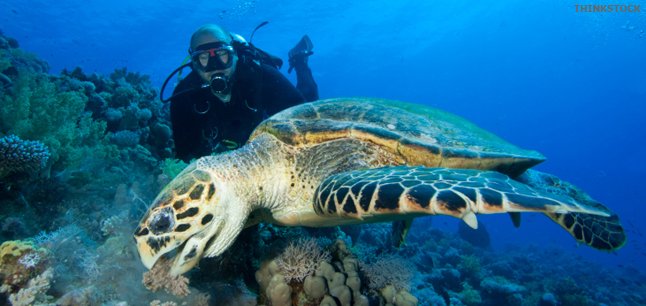Learn what a marine biologist job description does, how to apply for this position, and what it takes to be successful in this field.
The creatures and plants that inhabit lakes, rivers, streams, seas and other bodies of water are the subject of research for marine biologists. They are curious about how these organisms interact with one another and their surroundings to live. A particular type of organism or ecosystem may be the focus of a marine biologist.
Marine biologists can find employment in various settings, including academia, governmental organizations, and commercial businesses. Despite their vocations’ variety, they all love the ocean and the creatures that call it home.

Jobs for Marine Biologists
Among their many duties as marine scientists are the following:
- To comprehend better marine life forms, one must research them, including their ecology and life cycles.
- carrying out environmental impact analyses to ascertain the effects of human activity on marine ecosystems
- studying how pollution affects aquatic environments and marine life
- recording information about the state of the water, animal encounters, and other observations with computers or portable equipment like GPS receivers or digital cameras
- gathering biological samples, including water or animal tissue, to check for pollutants or disease
- studying aquatic species in their natural environments
- exploring maritime environments, such as coral reefs and intertidal zones, for the study
- creating tests for theories regarding marine animal behaviour
- public dissemination of research findings via presentations, journal papers, and other media
Salary and Outlook for Marine Biologists
Salary ranges for marine biologists depend on their education level, years of experience, and the kind of employer.
$66,500 on average per year ($31.97/hour)
Annual Salary for the Top 10%: $198,000 ($95.19/hour)
Over the upcoming ten years, marine biologists’ employment is anticipated to increase on average.
The demand for marine biologists will continue to be driven by the need to comprehend and safeguard the oceans and their resources.
Additionally, there may be increased research in this area due to the growing worry over how climate change would affect the ocean environment.
Read Also: http://How to apply for Marine Biologist Job Description
Jobs for Marine Biologists
The following education is often required for marine biologists:
- The minimum educational need for marine biologists is a bachelor’s degree in biology, zoology, marine biology, or a closely related discipline.
- Another Master’s degree in marine biology or a closely related discipline is another option for many marine biologists.
- If you wish to boost your income potential or specialize in a particular branch of marine biology, a master’s degree can be helpful.
- Marine biologists learn most of their trade through formal schooling and on-the-job training. For experience in marine biology, they could work as volunteers or interns. Working in marine-related professions like fishing or oceanography allows them to obtain knowledge.
- On-the-job training is another option for marine biologists to learn more about the local marine species. They might pick up information on local fish species and the most effective methods for catching them. They might also discover more about the business’s various tools and procedures.
Licenses and Certifications: Although they are not necessarily necessary for careers as marine biologists, certifications are preferred by many employers. Certifications demonstrate your professional ambition and drive.
Skills of a Marine Biologist
To succeed, marine biologists require the following abilities:
Problem-solving abilities: Marine biologists frequently collaborate with other scientists to conduct research and find solutions to problems arising in their work line. For instance, a marine biologist might collaborate with a group of engineers to build a brand-new gadget to aid in data collection or marine animal observation.
Technical abilities: To gather and evaluate data, create and carry out research programs, and conduct experiments, marine biologists employ their technical skills. They also use technical capabilities to develop presentations and reports regarding their study.
Communication skills: To complete their task, marine biologists frequently collaborate in teams with other biologists and other professionals, such as engineers. Marine biologists can better express their ideas and comprehend others’ ideas through practical communication skills. They might also interact with the general public to explain their work and its significance.
Marine biologists identify marine animals and their habits by using their observational skills.
Additionally, they employ observational skills to spot environmental alterations in the ocean, such as variations in water temperature or oxygen levels. They can use this information to forecast oceanic changes and save marine life.
Environment for Marine Biologists at Work
The behavior, reproduction, and dispersion of marine species are only a few of the topics covered by marine biologists’ research. They investigate the ocean’s physical, chemical, and biological characteristics and the impact of pollution and other human activities on marine life.
Regular workplaces for marine scientists are close to the coast, where they have easy access to the ocean. They may invest much time outdoors, conducting fieldwork on the sand or in small boats. They might also operate in aquaculture facilities, where they support the cultivation and harvesting of marine life.
Although they might spend more time conducting field research, writing reports, or submitting funding bids, marine biologists usually work a 40-hour workweek.
Conclusion
Although a job as a marine scientist can be incredibly gratifying, it’s crucial to consider all your options. You could work for a government organization, teach at a university, or conduct research.
Alternatively, you can decide to work in conservation or policy, or you might want to do freelance writing or photography.
Whatever path you take, staying current on the most recent scientific advancements and discoveries about oceans and marine life is critical. Attend conferences, read papers and articles, and communicate online with other scientists.
